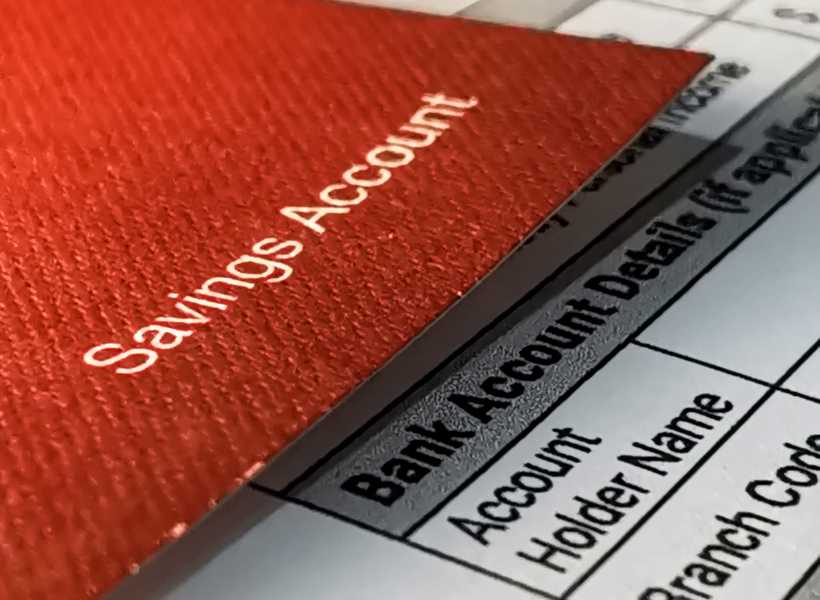If you are ready to step up your money game and reach your savings goals in just 6 months and whether you want to pay off debt, save for a dream vacation, or build an emergency fund, then we’re here to help!
Saving money or Saving money in 6 months might feel difficult at times, but with the right strategies and some determination, you can have much fun while doing it. 🌟
Get ready to explore our complete guide, filled with practical tips and techniques to help you achieve your financial goals in just half a year.
From setting clear 6-month goals to mastering budgeting, saving tips, and wise money management, we have all the tools you need. Let’s start your journey to financial success together! 💪🏼🚀
How can I save money in 6 months? To save money in 6 months, begin by making a budget to keep track of your spending and find areas where you can spend less. Cook meals at home, lower utility bills by using less energy and water, set clear goals for saving money and set up automatic transfers to a special account.
- Saving Money In 6 Months: Brief Description
- Importance Of Setting A Realistic Savings Goal Within A 6-Month Timeframe
- Assess Your Current Financial Situation And Identify Areas To Cut Expenses
- Creating A Detailed Budget To Track Income And Expenses
- Identifying And Cutting Down On Unnecessary Or Frivolous Expenses
- Tips For Automating Your Savings To Ensure Consistency And Discipline
- Exploring Different Ways To Increase Your Income, Such As Freelancing Or Part-Time Work
- Utilizing Money-Saving Apps And Tools To Track Progress And Stay Motivated
- Setting Up A Separate Savings Account For Better Organization And Focus
- Monitoring Your Progress Regularly And Making Adjustments As Needed
- Seeking Advice From Financial Experts Or Mentors For Additional Guidance
- Celebrating Milestones And Small Victories Along The Way To Stay Motivated
- FAQ About Saving Money In 6 Months
- Final Thought 💭
Saving Money In 6 Months: Brief Description
When you want to save money, having a specific time frame can help you stay motivated and focused.
Saving money in 6 months is a practical goal that lets you make significant progress toward your financial goals.
Whether you need to build an emergency fund, pay off debt, or save for a down payment, this timeline gives you enough time to make a real impact on your savings, potentially saving thousands of dollars.
By following the tips and techniques in this guide, you’ll be well on your way to achieving your financial goals in just 6 months.
6-Month Financial Goals
Setting clear money goals for the next 6 months is very important for saving. These 6-month financial goals act as a map, showing how to wisely use and grow your money.
By setting specific targets based on your income, spending, and priorities, you’ll have a roadmap to follow and stay motivated to stick to your savings plan.
Breaking big goals into smaller steps and money saving in 6 months helps you stay motivated and track progress.
Planning for short-term financial aims boosts confidence, keeps you driven, and lets you make needed changes.
With clear money goals for the next half-year, including working with advertisers, you’ll have a solid plan for saving and keeping focused and energized along the way.


Budgeting For 6 Months
Budgeting is very important for managing your money and reaching your savings goals over 6 months.
If you are planning on Budgeting for 6 months then here are some important things to think about when budgeting for the next 6 months and creating a financial plan: Setting aside money for specific things helps with planning your finances.
Make categories for your spending, like food, rent, bills, transportation, paying off debt, and saving money. Keeping track of your spending over 6 months shows your spending habits.
Write down all your expenses, no matter how small, to see where you may be spending money unnecessarily. Making a budget and financial plan helps you prioritize what you need to spend money on.
Figure out how much money you need for things like rent, bills, and food, and allocate your money accordingly.
Sticking to a budget helps you avoid buying things you don’t need. By having a plan for your spending, you can resist buying things on impulse and focus on your savings goals.
Learning more about money through budgeting is helpful. Budgeting helps you understand where your money is going, make smart money choices, and plan for the future.
To make a budget, start by adding up all the money you make each month, including your regular paycheck, any freelance work, or other income.
Then, list all your expenses and divide your money into each category, making sure to save some. Be realistic when making your budget, and leave room for unexpected expenses and emergencies.
Check your budget regularly, keep track of your spending, and make changes as needed to make sure you reach your financial goals in 6 months, including making minimum payments on your bills to stay on track.

Saving Techniques For 6 Months
Including smart money-saving tips for 6 months of saving money into your daily routine, the most important key is to reach your financial goals in just 6 months.
By setting up automatic transfers from your checking account to a separate savings account, using different accounts for various goals, trying out money-saving apps, slowly increasing your savings rates, and celebrating small wins along the way, you can steadily make progress toward your 6-month financial goals.
Stay consistent and motivated on your saving journey by setting up Saving techniques for 6 months.
Money Management Over 6 Months
Managing your money well for 6 months is very important if you want to save money. Here are some important things to think about in money management over 6 months:
- 👀 Keep an eye on your bank statements, credit card statements, and other money accounts regularly to make sure everything is right.
- 📊 Make a habit of including your money goals in your daily routines, like checking your budget and tracking your spending.
- 💰 Adjust your spending based on how much money you make each month. Save more during high-income months and focus on important expenses during low-income months.
- 🚑 Set aside some money each month for emergencies, like medical bills or unexpected home repairs.
- 💬 If you need help with your money, talk to a money advisor for personalized advice.
By using these money management strategies, you can make sure you stay on track with your money goals and save money over 6 months.

Importance Of Setting A Realistic Savings Goal Within A 6-Month Timeframe
It’s important to set a practical savings goal within a 6-month timeframe for your finances. By creating achievable targets, such as finding a savings account or certificate of deposit with a high-interest rate, you can make sure your savings align with your dreams.
Setting smaller goals along the way helps you keep track of your progress and stay motivated as you reach each step.
Celebrating these achievements not only recognizes your success but also encourages good money habits.
This smart approach to saving builds a sense of pride and sets the stage for a secure financial future.
It helps you manage your money wisely and encourages a proactive attitude towards financial stability.
By making saving and budgeting a priority over immediate wants, you are investing in your long-term financial well-being and independence.

Assess Your Current Financial Situation And Identify Areas To Cut Expenses
Checking where you stand with your money is the first step to saving. Finding things you don’t need to spend on helps you save 💰.
Looking at how you spend money shows where you can save 💡, including your net worth and liquid assets.
Keeping track of how much you make versus how much you spend shows if you have enough 💸. Figuring out where you can spend less money makes your finances stronger 💪.
Creating A Detailed Budget To Track Income And Expenses
Making a detailed budget helps you keep track of how much money you earn and spend. By organizing your expenses into categories, you can see where your money is going.
Keeping an eye on your income compared to what you spend helps you stay financially healthy. Having a structured budget encourages you to be responsible with your money.
Checking your budget regularly helps you make smart financial decisions and manage your money well.

Identifying And Cutting Down On Unnecessary Or Frivolous Expenses
Reducing wasteful spending habits not only helps save money 💰, but it also helps us have a better relationship with our finances 💸.
By avoiding unnecessary purchases, we can develop a mindset of being careful with our money and purposefully saving. Putting important expenses before non-essential spending is the key to creating a strong financial base for our future.
Recognizing the difference between what we need and what we want is crucial for cutting costs and staying focused on our long-term financial objectives.
Let’s begin our journey to saving money by recognizing and decreasing those unnecessary or silly expenses! 🛍️🚫

Tips For Automating Your Savings To Ensure Consistency And Discipline
Automating your savings transfers can make saving money easier. By setting up regular transfers to your savings accounts, you create a habit of saving money regularly.
Using technology for automated savings not only makes things simpler but also helps you stick to your savings goals.
Automatic deductions for savings can prevent you from spending money impulsively.
Exploring Different Ways To Increase Your Income, Such As Freelancing Or Part-Time Work
Trying out different ways to make more money, like doing freelance jobs or working part-time, can really help you boost your income.
Having different sources of income not only makes you more financially stable but also helps you learn new skills.
By trying out new job opportunities, you can improve your professional abilities while creating extra income streams.
Side jobs like freelancing can provide you with extra cash to help you reach your financial goals. Adding part-time work to your schedule can be a smart way to meet your money objectives.

Utilizing Money-Saving Apps And Tools To Track Progress And Stay Motivated
By using money-saving apps and tools, you can make it easier to keep track of your budget for better financial management.
These apps help you see where your money is going, which can help you make smarter choices and reach your savings goals.
Keeping an eye on your spending habits with these apps can make saving money a more organized process, helping you stay consistent and disciplined in reaching your financial goals.
These tools offer a structured way to manage your money effectively, keeping you motivated to hit your savings targets.
Setting Up A Separate Savings Account For Better Organization And Focus

When it comes to managing your money well, setting up a separate savings account is very important. 🌟
This helps you avoid spending money unnecessarily and makes it easier to keep track of your funds. 💰
Having a dedicated savings account, whether it’s at a bank or a credit union, helps you develop good saving habits and protects your savings from impulse buys. 💸
Also, organizing your money with a separate account improves your overall financial planning, making it easier to stay focused on your saving goals. 📈
Monitoring Your Progress Regularly And Making Adjustments As Needed
Checking your progress often helps you stay focused on your money goals. Making changes when necessary can improve your savings plan.
Keeping track of your finances helps you handle money better and adjusting quickly helps you reach your goals faster. Looking back on your journey helps you see where you can make improvements.

Seeking Advice From Financial Experts Or Mentors For Additional Guidance
When you are trying to save money, it’s important to ask for help from people who know a lot about finances.
Talking to experts or mentors, such as a financial advisor, can give you good advice on how to manage your money better.
Mentors can help you understand different ways to handle your finances, so you can make smart choices.
Working with experts can give you personalized advice that fits your money goals. Their help can assist you in making a solid plan for your money and improving your credit score for a better financial future. 💰📈🔍
Celebrating Milestones And Small Victories Along The Way To Stay Motivated
Recognizing accomplishments, whether they are big or small, is important in keeping yourself motivated to save money.
By acknowledging goals you’ve reached, you can stay excited about saving money. Celebrating every little success helps to keep you going toward your long-term financial goals.
Reinforcing good money habits by celebrating achievements helps you to keep up with saving money regularly.
Achieving success along the journey helps you to have a positive attitude towards your financial progress, which keeps you dedicated to your money goals.


FAQ About Saving Money In 6 Months
Is It Possible To Save $10,000 In 6 Months?
Saving $10,000 in 6 months is doable with smart money planning. By cutting costs, making more money, and setting monthly savings goals, achieving this target is possible. Keep an eye on spending, try out extra ways to earn cash like side jobs, and stay motivated by having clear financial goals. The good news is that it’s achievable to save $10,000 in 6 months with a solid 6-month saving plan, some self-restraint, and the right mindset. To reach your goal, you will need to save approximately $1,666 per month or $385 every single week. But smart saving is all about adjusting your plan to meet your circumstances, income, and expenses.
How Can I Save $1000 In 6 Months?
Achieving a $1000 savings goal in 6 months involves setting a clear target, keeping track of your spending, spending less on things you don’t need like eating out, finding ways to earn extra money like working part-time or selling stuff, and setting up automatic transfers of $200 from your monthly income to a special savings account.
Is 6 months Savings Enough?
Creating a backup fund for unexpected situations is very important. Specialists suggest saving money equivalent to your expenses for 3-6 months, also known as emergency savings. Think about your situation, expenses, and responsibilities when setting your savings goal. Having more than 6 months’ worth of emergency savings can give you extra security and help you feel less worried.
How To Save $5000 In 6 Months?
To save $5000 in 6 months, first make a plan to track how much money you make and spend. Cut back on things like eating out. Look for ways to make extra money, like doing freelance work. Find ways to spend less on things like utilities and groceries to save even more money.
Final Thought 💭
It can be understood that it’s possible to save money in 6 months with dedication, planning, and discipline.
Saving money in 6 months, it is important to set realistic goals, track expenses cut unnecessary costs, and find ways to earn extra money to reach financial stability.
Use savings tools, automate your savings, and seek advice from experts to stay on track. Remember to celebrate each milestone to stay motivated.
Small steps lead to big savings. 🌟 Share this guide on social media to inspire others on their financial journey. 💰🎉





Leave a Reply